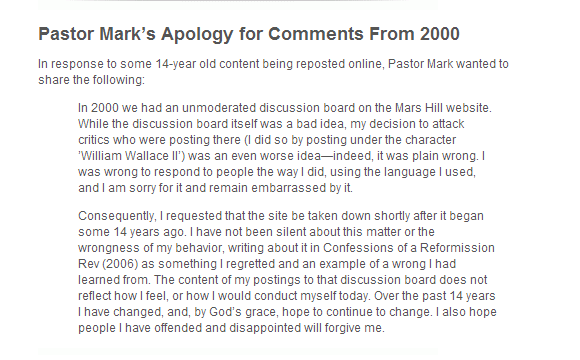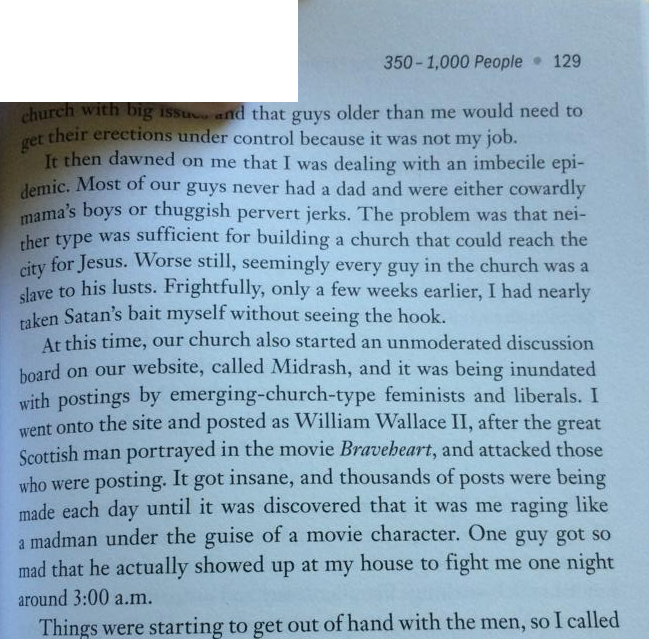The mission statement of the Evangelical Council for Financial Accountability is “Enhancing Trust in Christ-Centered Churches and Ministries.” A primary means of pursuing their mission is through promotion of their seven standards of stewardship.
The ECFA website states that the standards are “are fundamental to operating with integrity.” The ECFA tells the public that organizations who voluntarily agree to adhere to the standards “must comply with all of the standards, all of the time.”
But what happens when an ECFA member does not adhere to “all of the standards, all of the time?” What does the ECFA do to alert the public when non-compliance is discovered? The disappointing answer for donors is that the ECFA may do nothing to alert the public when an organization is or was out of compliance. In contrast to former years when the ECFA publicly suspended organizations, now the ECFA conducts a private review if there is concern over compliance with standards. Michael Martin, Director of Legal Services and Legal Counsel for the EFCA told me, “When standards-related issues are under review with respect to a particular member, ECFA does not comment on our review.”
I have written numerous emails and left phone messages with the ECFA regarding the Mars Hill Global Fund since May, 2014. I am aware that former members of Mars Hill Church have also contacted ECFA about the use of donations to the Mars Hill Global Fund from 2012-2014. In response to one of those former member emails, Michael Martin replied:
We are aware of the issues you mention and are in communication with leaders of Mars Hill concerning matters which relate to ECFA standards.
True to his word, the ECFA did not comment from May until July 25 when the organization released a statement to World Magazine:
The Evangelical Council for Financial Accountability (ECFA) conducted a review of Mars Hill Global and issued a statement that read, in part, “The Church has gone the second mile to address use of any funds if they were not used consistently with donor intent. This commitment, which ECFA will periodically verify, demonstrates the integrity of Pastor Mark Driscoll and Pastor Sutton Turner.”
In other words, trust us, we will let you know. However, the problem for prospective donors is no one let them know. This statement is very close to an admission that the church did not comply with ECFA guidelines “all of the time” (“The Church has gone the second mile to address use of any funds if they were not used consistently with donor intent“). About donations to the Global Fund between 2012-2014, the church had already acknowledged that the “preponderance of expenses related to church plants and replants in the U.S” which was a change from their 2013 Annual Report when they reported that Global Fund money went to mission efforts in India and Ethiopia. There was no report of money spent on U.S. church plants. Yet, donors would not have known that if not for those outside of Mars Hill Church and the ECFA writing about it. Mars Hill Church is still misleading people about how they portrayed Mars Hill Global and has certainly done their part to keep this information out of public view by scrubbing video evidence. Apparently, the ECFA also believes that these matters should be handled secretly without potential donors knowing what is going on.
The ECFA touts their standards as “fundamental to operating with integrity.” They are good standards. However, if the public does not know that an organization has not or is not following them, then how can that integrity be assessed?
In recent years, the ECFA has removed very few organizations from membership due to violations. Most former members have either voluntarily given up their membership or merged with other organizations.
In the old days, it seems to me that donors had more of an advocate with the ECFA. For instance, witness this response from then ECFA president Paul Nelson to criticism received in 1997 when the ECFA suspended Gospel Rescue Mission (a homeless mission?!) for using generic fundraising letters (a more minor offense than re-routing mission money, in my view):
The ECFA, Mr. Nelson said, does not want to punish member organizations, which by joining are voluntarily submitting to accountability. “By the same token we must call attention to the issues when a violation has occurred, and that’s what we’ve done in this case,” he said. “Our whole approach is not to be adversarial to the membership but to take disciplinary steps when we have to, which is what we felt we had to do. Now we’re prepared to work with them, if they are prepared to work with us.”
At the time, the ECFA seemed to take a more diligent approach to their public role. Nelson added:
The standards have not changed, Mr. Nelson said, and the suspension is a reminder that ECFA intends to be vigilant. “I think it does send a clear message-that if there are practices going on, and if those practices are widespread, that are borderline, or are moving in and out of compliance-that ECFA is serious about truthfulness in communications.”
As an evangelical donors to evangelical causes, this research into Mars Hill Global and the ECFA has been surprising and disappointing. More so than ever, if I have doubt about an organization, I will check that organization’s ECFA status but that will be only the beginning. I now know that an organization could be out of compliance even if accredited. Worse yet, the accrediting group could know an organization is out of compliance and never make it known. I will use the ECFA standards, but realize I will have to explore compliance on my own with the organization. I will have to ask for reports of how money is used (apparently the ECFA is not going to require this report from Mars Hill Church regarding their Global Fund) and not assume that accreditation means the organization has been or is in compliance with the guidelines.
Unfortunate, but good to know.
For more on Mars Hill Global, click the link.
For a donor-centered watchdog organization, see Ministry Watch.


